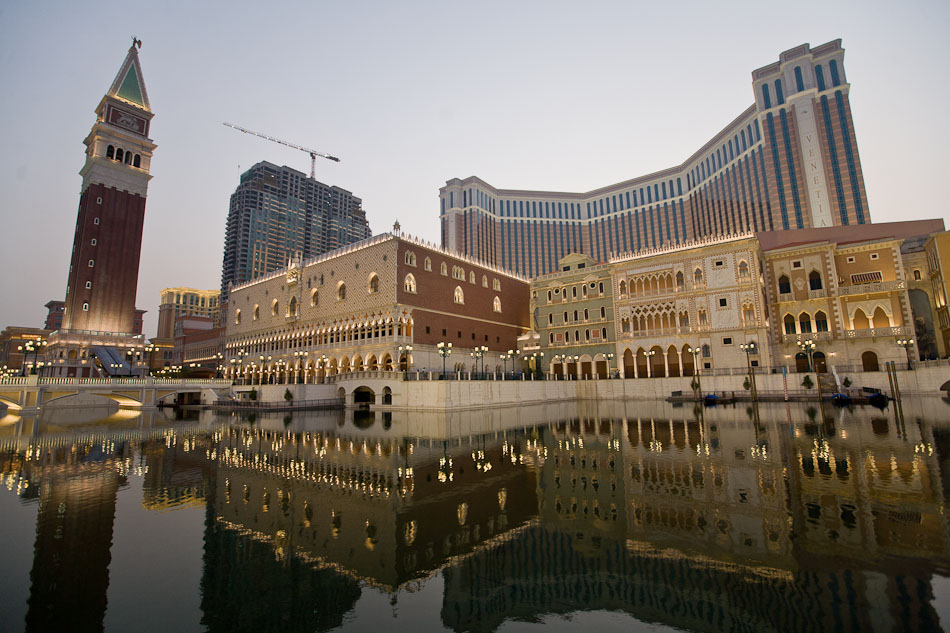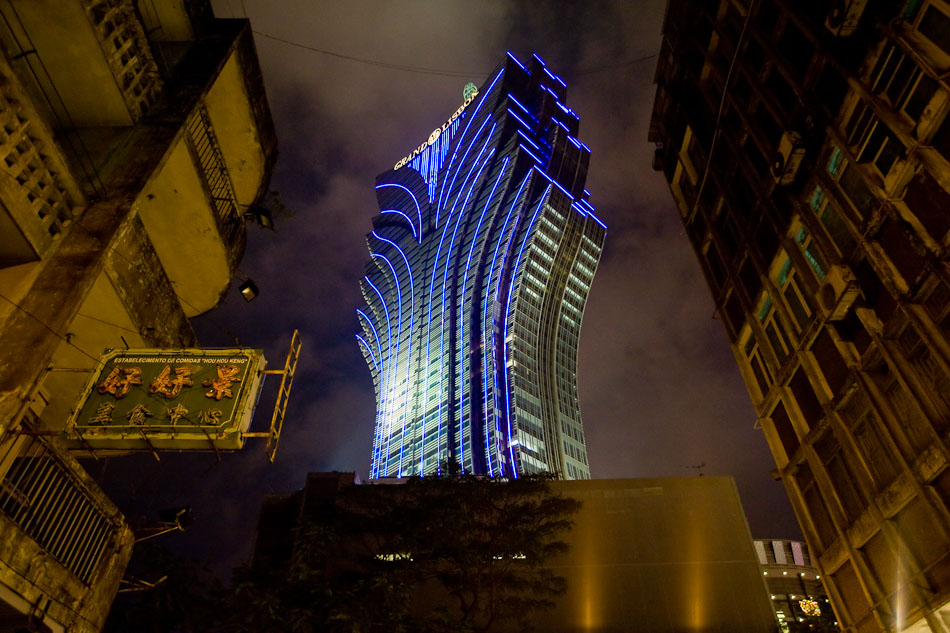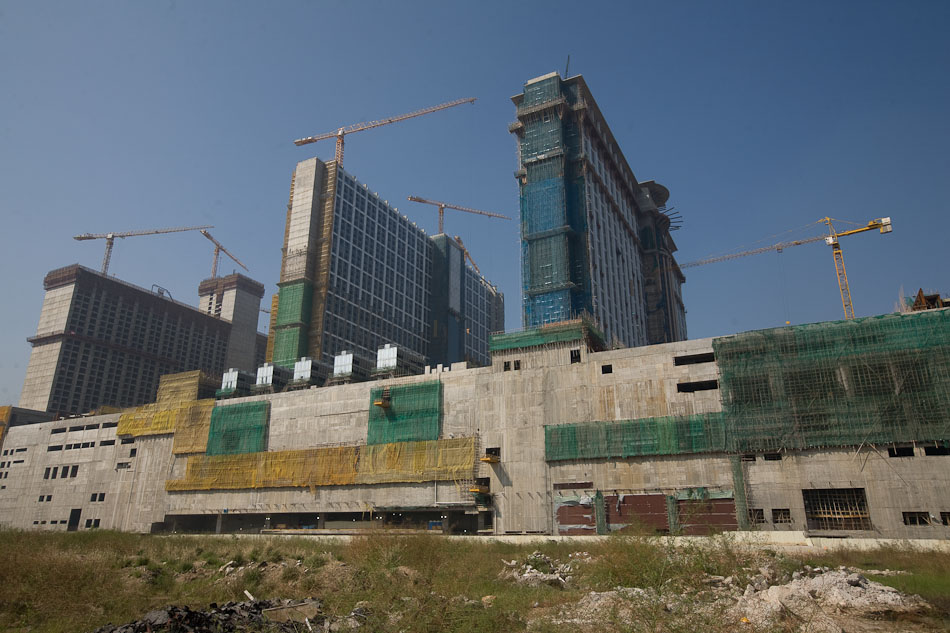Macau’s unique character draws deeply from its eclectic cultural heritage. Both the first and last European colony in China, Portuguese sovereignty in Macau was not ceded until 1999, over 400 years after the establishment of the original settlement. Since the handover Macau has existed in a liminal realm stipulated by the “one country, two systems” policy – the Chinese state handles defense and foreign affairs but relinquishes control over domestic matters such as the police force, monetary system and political appointments. However, since Macau opened up its casino sector in 2002, the island’s socioeconomic fate was bound to the rise and fall of its entertainment resorts.
Last month I ventured to Macau to inspect the Cotai Strip, a massive development modeled after the Las Vegas Strip and home to the Las Vegas Sands’ Venetian Macau Resort. Currently the largest casino in the world, the Venetian helped Macau surpass Las Vegas in gambling revenues last year. For now Macau remains the only gambling destination within China and easily one of the most prominent within Asia. Still, the Chinese state is trying to curb the rampant profits and concomitant “dark elements” that spawn from the gambling world. Thanks to new border regulations implemented this summer, mainland Chinese can only visit Macau once every three months.
The loss of such an audience now pales in comparison to the impact of the current global financial downturn. Las Vegas Sands recently laid off 11,000 laborers and suspended work on two expansion projects planned for the Cotai Strip. MGM and Galaxy Entertainment also halted future expansion efforts. The hottest casino market in the world fizzled almost overnight. Still, a halt to the unchecked leeching of Asia’s nouveau riche might not be such a horrible turn of events. More shopping malls and roulette tables should be the least of Macau’s concerns as it continues to come to grips with its new identity as Asia’s premiere entertainment destination.
Over the past few years Macau residents have taken to the streets to protest against rampant corruption and labor issues stemming from the rise of powerful casino moguls. Now, with financial markets spiraling out of control, relying on the luxury entertainment industry no longer seems like a safe bet. For once the demand for casinos in Asia cannot meet the excessive supply in Macau. Catering to indulgent tastes at the Venetian does not fit reform-minded market trends. Even if Macau’s casinos make some sort of recovery in the coming months, the whole enterprise carries a heavier stigma of waste and decadence.


